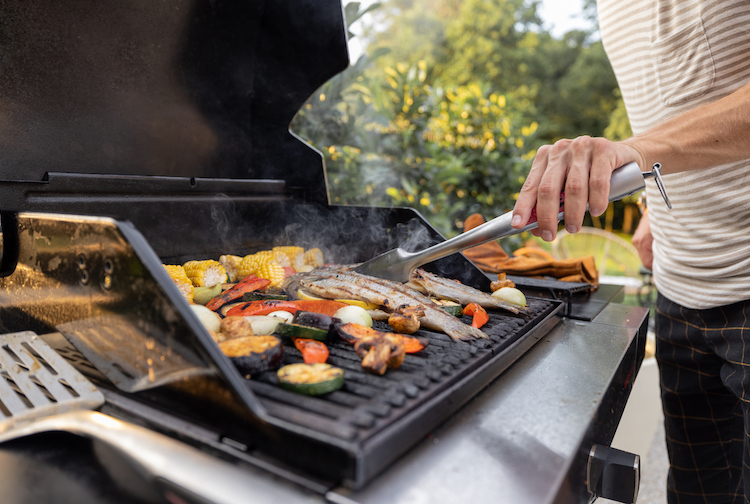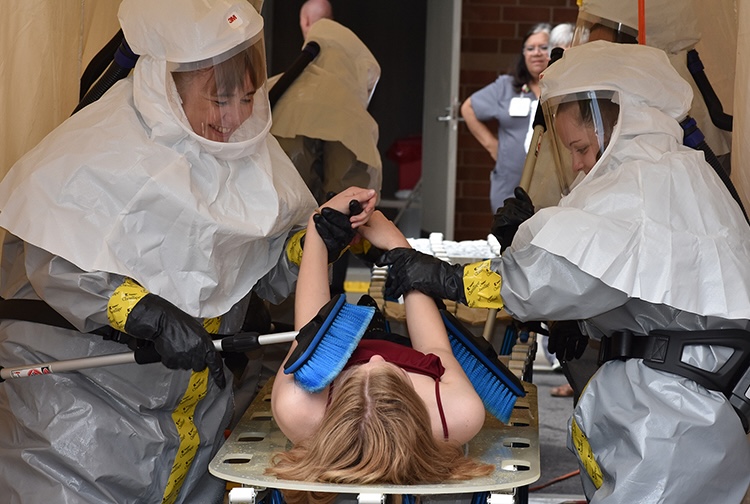
Summer Safety: Can grilled meats produce cancerous chemicals?
VCU Massey Cancer Center expert shares tips on how to keep summer cookouts fun, delicious and safe.
June 26, 2023 Chemicals that could potentially cause cancer form when cooking at a high temperature while grilling, pan-frying and barbecuing. (Getty Images)
Chemicals that could potentially cause cancer form when cooking at a high temperature while grilling, pan-frying and barbecuing. (Getty Images)
By Jayla Parker
Steak, barbecue, hamburgers, hot dogs and chicken. What do all of these meats have in common? They all taste best when they’re touched by the sizzling flames of a grill on a hot summer day.
Many would describe the meats listed as being full of flavor, but recent research suggests that they also have the possibility of being full of carcinogens — substances capable of causing cancer when cooked at high temperatures.
“We don’t want to tell people you can never grill, but there are things you can do to help with that,” said Samantha Haswell, MS, RD, a registered dietitian with VCU Massey Cancer Center.
As part of her work with Massey, Haswell educates patients and community members about nutritional needs for cancer prevention and recovery after treatment through blog posts, support groups, one-on-one counseling and more.
Haswell shared tips with VCU Health News for our Summer Safety Series on how to have delicious and healthy cookouts this summer.
What are carcinogens?
The issue isn’t necessarily the meat itself, but it’s what the meat can become after grilling. When cooking meat at a high temperature — more than 300 degrees Fahrenheit — cancerous carcinogen chemicals can form, such as heterocyclic amines (HAs) and polycyclic aromatic hydrocarbons (PAHs).
The highest amount of these chemicals are commonly formed when cooking at a high temperature while grilling, pan-frying and barbecuing.
So, let’s say you choose to grill a steak. During that grilling process, the amino acids, sugars and creatine in meats will react to the high temperatures and begin to form heterocyclic amines and carcinogens, which increases the risk of developing cancer.
According to research from the International Agency for Research on Cancer (IARC), specifically red meat, like beef, lamb and pork, can form PAHs before even touching the grill due to the curing and smoking of being processed.
How can I protect myself from cancerous chemicals?
Do not panic! There are easy ways to work around this issue.
Preparing meat before it touches the grill will become your best friend.
- Marinate the meat ahead of time to significantly decrease the chances of cancerous chemicals forming; the flames will caramelize the marinade instead of the meat.
- Pre-heat the meat to reduce the amount of time that it’s on the grill.
- Wrap any meat that you’re planning on the grill in tin foil to prevent the flames from hitting the meat directly.
- Don’t reuse the same oils you used before: reheating cooking oil also releases carcinogens.
In addition, health experts recommend limiting the amount of meat you eat.
What about grilling fruits and vegetables?
Choosing to replace animal proteins with vegetables is a guaranteed safe way to reduce your intake of cancerous chemicals because neither fruits nor vegetables form carcinogens during the grilling process. Additionally, fruits and vegetables are high in phytochemicals that can help reduce your cancer risk!
Freshly seasoned potatoes, zucchinis, asparagus, broccoli, onions, mushrooms and bell peppers will not only satisfy your stomach, but also your taste buds.
Pineapples are also known for being a delicious addition to the grill because the caramelization brings out its natural sweetness.
Lastly, making skewers with a mix of grilled fruits, vegetables and meats is a great opportunity to reduce meat intake, limit carcinogens and add color to your summer plate.



